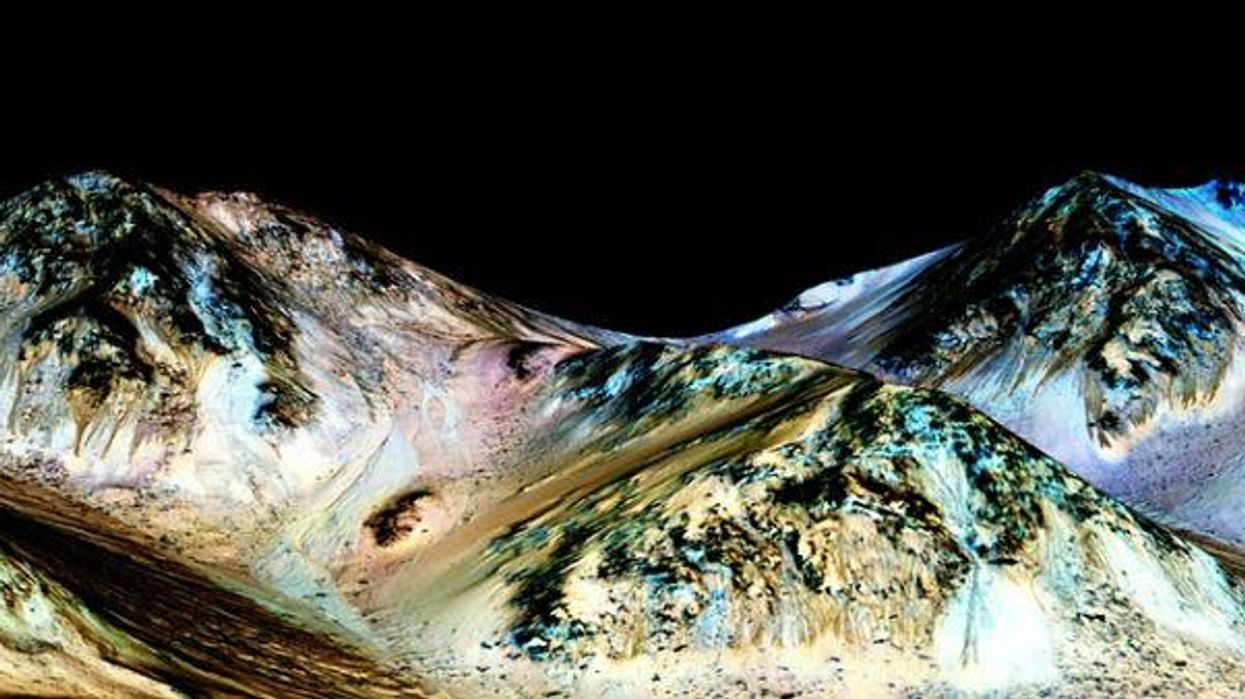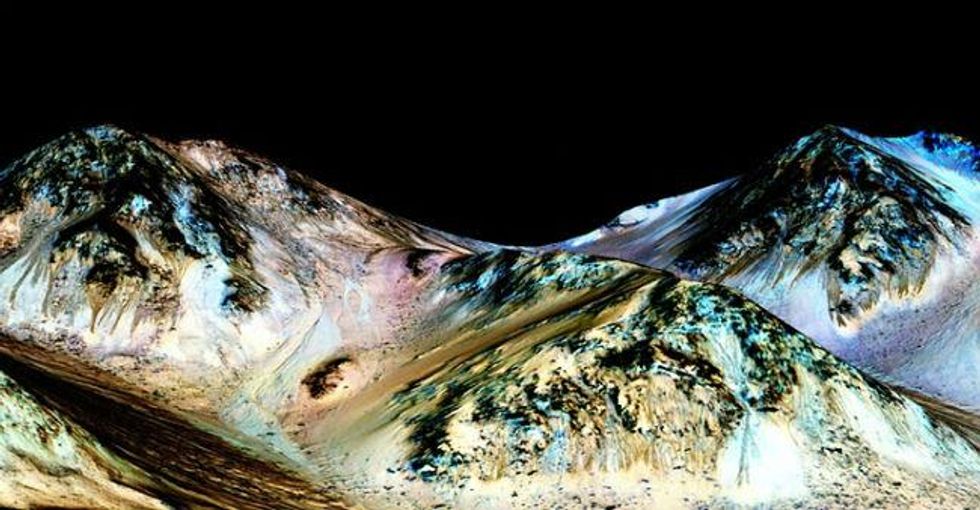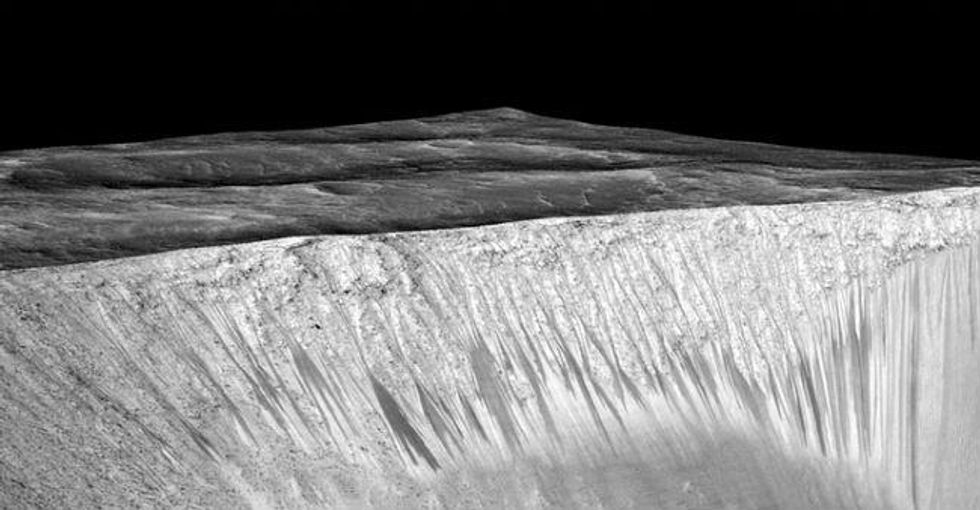Science & Tech

What's going on?
Nasa has announced it has evidence that "strongly supports" the hypothesis that liquid water is flowing on Mars.
Hydrated salts were discovered in damp gullies in spectral images taken by the Mars Reconnaissance Orbiter of the Red Planet's equatorial regions.
Haven't we heard this before?
The geological formations which Nasa now believes have water flowing down them were first announced in 2000.
The US space agency has also repeatedly announced evidence of water in the distant past, and also of water vapour and snow.
Why is this announcement special?
This is the first time Nasa has announced contemporaneous evidence of flowing water - liquid water being an essential ingredient for life.
While the announcement, first published in the journal Nature Geoscience, stops well short of speculating about life on Mars, the dissolved salts in the water are also required by living organisms.
Mars is constantly bombarded by life-destroying cosmic radiation, but microbial lifeforms do live in briny solution in the Atacama desert in Chile, one of the driest places on Earth.
“These results strongly support the hypothesis that seasonal warm slopes are forming liquid water on contemporary Mars,” say researchers Lujendra Ojha of Arizona University, Mary Beth Wilhelm of Nasa Ames Research Centre in Moffat Field California, and colleagues.
What else has been said?
Joe Michalski, a Mars researcher at the Natural History Museum London, who was not involved in the research, commented:
These results provide strong evidence that salty water occasionally flows on the Martian surface, even today. We know from the study of extremophiles on Earth that life can not only survive, but thrive in conditions that are hyperarid, very saline or otherwise 'extreme' in comparison to what is habitable to a human.
In fact, on Earth, wherever we find water, we find life. That is why the discovery of water on Mars over the last 20 years is so exciting. We have found water in ice form, in permafrost, and in the structures of many types of minerals.
What are the implications of today's announcement?
Dr Michalski added:
This finding is yet another example of water on Mars, but a hugely important one because it points to environments that could potentially be habitable to certain kinds of bacteria, even today. In addition, the discovery of active geological and hydrological processes elsewhere in the Solar System underpins the point that these other worlds are actual places one could visit, where nature is happening every day.
Stay tuned.
All pictures via Mars Reconnaissance Orbiter/University of Arizona/JPL/Nasa
More: This Nasa gif shows just how amazing New Horizons's Pluto fly-past was
Top 100
The Conversation (0)
















